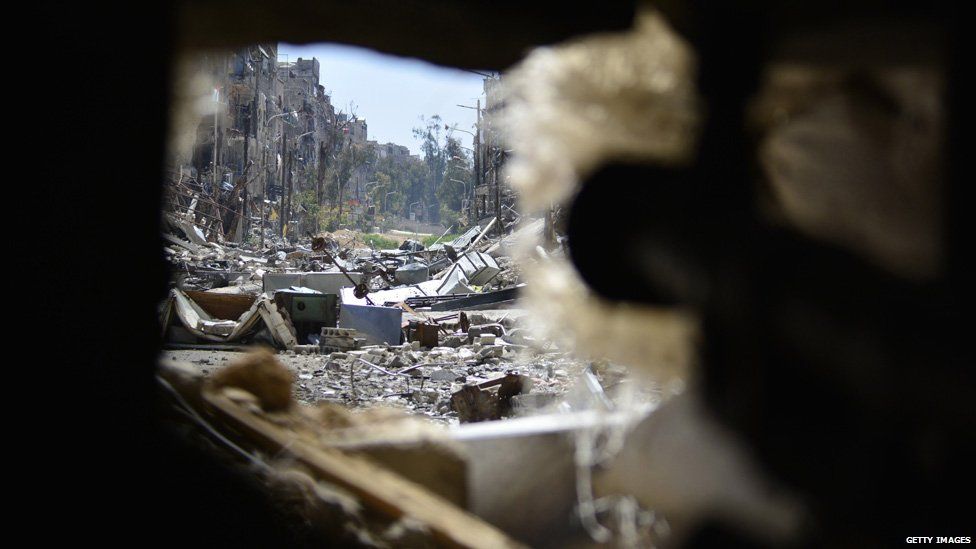What life is like for teenagers who try to join Islamic State
- Published

Police have stopped a teenager from running away to join Islamic State.
In this latest case a schoolgirl from east London intended to travel to Syria, after taking her GCSEs, to marry a jihadi fighting for IS.
Police were tipped off about the 16-year-old by the Daily Mail after she was tracked on social media.
Melanie Smith, from King's College in London, monitors the online accounts of women who have joined IS.
"We do have to be careful with giving these girls sympathy," the expert in radicalisation told Newsbeat.
"We don't want to let another 15-year-old girl think she won't get into trouble if she goes."
She monitors roughly 90 women via their social media accounts who are believed to be living in Syria and Iraq.
IS appears to be aggressively targeting young women on social media to come and join them using encrypted apps on smartphones.
But with no electricity, home comforts, along with the real threat of being killed in an airstrike, Melanie Smith says the girls are being lured to a deadly place.
How many Western women have joined IS?
"The latest estimate is around 550 Western women and I would agree with that figure.
"I currently monitor 90 because they blog or tweet prolifically," Melanie explains.
Do we know what they are doing?
"They are fairly well informed about Islamic State. They are victims in that it is a pretty ruthless propaganda drive, but it is their choice," says Melanie.
"These girls are totally on board ideologically. They are not blind to the atrocities being committed.
"But they are misinformed about the danger.
"No one really knows what the conditions are like on the ground.
"Airstrikes are a massive deal and they won't really have any access to healthcare. They can't leave the house without an escort.
"Because of the shifting conflict they will constantly be on the move."
Many of the Twitter accounts Melanie Smith monitors share images of a happy and idyllic lifestyle.
But what is daily life really like with IS?
"Recently we've seen women who have broken out... saying it is cold, there is no electricity. They are shrouding their concerns in their blogs," says Melanie.
"One of them tweeted about seeing a body which had frozen to death in the street. But they manipulated it to criticise the person.
"It's a warped way of saying things aren't great here.
"It has definitely been difficult for IS to support their own forces."
Is there a recruitment 'chain'?
"The trigger for [running away] is liaising with people who are actually there," Melanie tells Newsbeat.
Many Westerners who have recently joined IS "already know someone there".
She adds: "The Bethnal Green girls already had a friend out there. And the girls from Manchester had a brother out there.
Others have been able to get "constant advice from people out there online".
Some have posted practical tips on booking flights, evading detection at the airport and crossing the border into Syria from Turkey.
Have any changed their minds?
"Tareena Shakil is from Birmingham. She went over with her toddler and was married off to a jihadi fighter.
"She realised she had made a mistake and broke into an official building where her passport was being kept."
Melanie says that when Tareena returned she said it had been an "impulse decision".
She was arrested immediately and her passport was revoked.
"Things are not what they seem. It is a very dangerous place to be, especially with children."
Melanie Smith is from the International Centre for the Study of Radicalisation at King's College London.
Follow @BBCNewsbeat on Twitter, BBCNewsbeat on Instagram and Radio1Newsbeat on YouTube